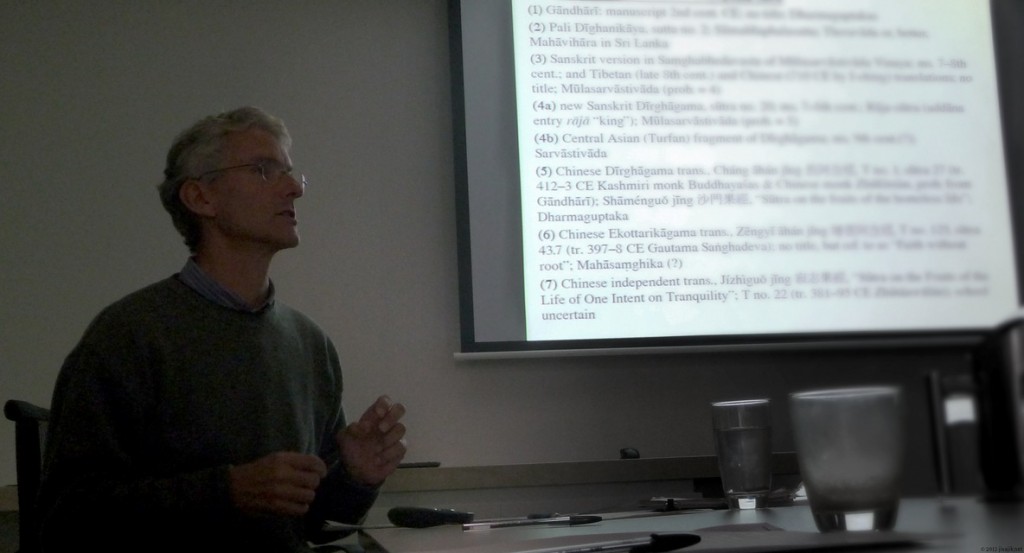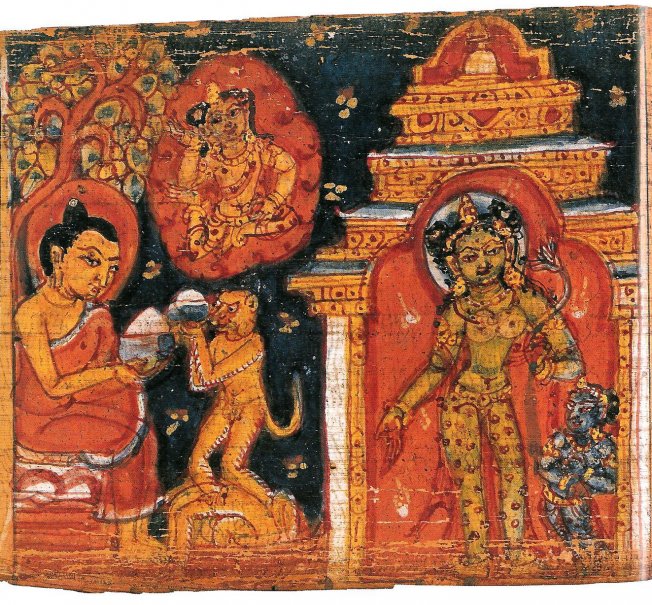Mark Allon. ‘A Gāndhārī version of the Buddha’s Discourse on the Fruits of Living the Ascetic Life (Śrāmaṇyaphala-sūtra)’. Australasian Association of Buddhist Studies Victoria Seminar, 5th April 2013, Deakin Prime Campus, Melbourne.
Abstract
The Senior collection of Gandhāran Buddhist manuscripts includes a scroll which contains a Gāndhārī version of the introductory section of the Śrāmaṇyaphala-sūtra, the Buddha’s discourse to King Ajātaśatru on the benefits of living the ascetic or holy life. The appearance of a Gāndhārī version of this interesting and popular sūtra coincides with the appearance of a second Sanskrit witness of it, namely, that included in the new Dīrghāgama manuscript, which preliminary research indicates is similar to but not identical with the Sanskrit version found among the Gilgit manuscripts. We therefore now have Indic versions of the Śrāmaṇyaphala-sūtra in Gāndhārī (albeit incomplete), Pali, and Sanskrit, a Tibetan translation and four Chinese translations, which belong to a diversity of schools and originate from different times and places. Not surprisingly the Gāndhārī sūtra is not identical to any other version, but shows a complex relationship with them. In this paper I will discuss the Gāndhārī version of the sūtra and its relationship to the parallels in other languages, the possible reasons for its popularity, and the likely reasons for its inclusion in the Senior collection.



